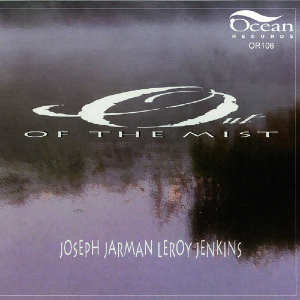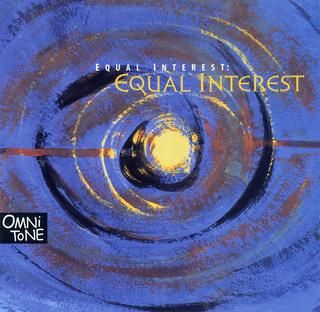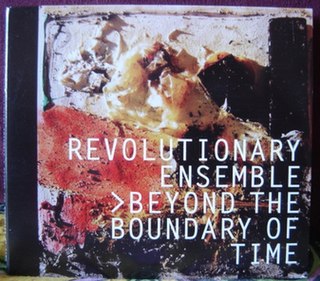
Leroy Jenkins was an American composer and violinist/violist.

Myra Melford is an American avant-garde jazz pianist and composer. A 2013 Guggenheim Fellow, Melford was described by the San Francisco Chronicle as an "explosive player, a virtuoso who shocks and soothes, and who can make the piano stand up and do things it doesn't seem to have been designed for."
Min Xiao-Fen is a Chinese and American pipa player, vocalist, and composer known for her work in traditional Chinese music, contemporary classical music, and jazz.

Robert Dick is a flutist, composer, teacher and author.
The Revolutionary Ensemble was a free jazz trio consisting of violinist Leroy Jenkins (1932–2007), bassist Sirone and percussionist/pianist Jerome Cooper (1946–2015). The group was active from 1970–1977, and reunited briefly in 2004. Musician George E. Lewis described the trio as "one of the signal groups of the period." Writer John Fordham stated that the group "was remarkable for its concentration on texture, tone colour and the then unclaimed territory between jazz and contemporary classical music." A DownBeat reviewer, writing in 1972, described them as "a unique, utterly contemporary unit of extraordinarily talented players who possess a world understanding of what 'organized sound' is all about."

Filmworks VIII: 1997 features two scores for film by John Zorn released on Zorn's own label, Tzadik Records, in 1998. It features the music that Zorn wrote and recorded for The Port of Last Resort (1998), a documentary directed by Joan Grossman and Paul Rosdy examining the experiences of Jewish refugees in Shanghai and Latin Boys Go to Hell (1997) which was directed by Ela Troyano.

The Legend of Ai Glatson is an album by American jazz violinist Leroy Jenkins, recorded in 1978 for the Italian Black Saint label.

Silence is an album by saxophonist Anthony Braxton, trumpeter Leo Smith and violinist Leroy Jenkins recorded in 1969 and originally released on the Freedom label in 1975.

Revolutionary Ensemble is an eponymous live album by the free jazz group consisting of violinist Leroy Jenkins, bassist Sirone and drummer Jerome Cooper, which was recorded in Austria in 1977 and released on the German Enja label and in the U.S. on Inner City Records the following year.

The People's Republic is an album by the Revolutionary Ensemble, violinist Leroy Jenkins, bassist Sirone and drummer Jerome Cooper, which was recorded in late 1975 and released on the A&M/Horizon label the following year.

Out of the Mist is an album by saxophonist Joseph Jarman and violinist Leroy Jenkins, which was recorded in 1997 and released on the Ocean label. Jarman, Jenkins, and pianist Myra Melford would go on to form the collaborative trio Equal Interest.

Equal Interest is an album by Equal Interest, a collaborative project by saxophonist Joseph Jarman, pianist Myra Melford and violinist Leroy Jenkins, which was recorded in 1999 and released on the OmniTone label.

Themes & Improvisations on the Blues is a live album by violinist / composer Leroy Jenkins. It was recorded in April 1992 at Merkin Concert Hall in New York City, and was released by Composers Recordings, Inc. in 1994. The album documents performances of four of Jenkins's compositions for ensembles of varying size. The violinist appears on two of the tracks.

The Psyche is a live album by the Revolutionary Ensemble, violinist Leroy Jenkins, bassist Sirone and drummer Jerome Cooper. It was initially released on LP in 1975 by the group's own label RE Records, and was reissued on CD in 2002 by Mutable Music.

And Now... is an album by the Revolutionary Ensemble, violinist Leroy Jenkins, bassist Sirone and drummer Jerome Cooper. It was recorded in June 2004 and released later that year by Pi Recordings. It was the first recording by the group following a hiatus of roughly 25 years.

Big Chief is an album by American free jazz drummer Sunny Murray. It was recorded in Paris in January, 1969, and was originally released on the Pathé label later that year. In 2008, it was reissued on LP by Eremite Records. On the album, Murray is joined by flutist Becky Friend, saxophonists Ronnie Beer and Kenneth Terroade, trumpeter Bernard Vitet, violinist Alan Silva, pianist François Tusques, and bassist Beb Guérin. In addition, poet H. Le Roy Bibbs joins the group on one track.

Space Minds, New Worlds, Survival of America is an album by violinist and composer Leroy Jenkins. It was recorded in August and September 1978, and was released on LP by Tomato Records in 1979. On the album, Jenkins is joined by George Lewis on electronics and trombone, Richard Teitelbaum on synthesizer, Anthony Davis on electric piano and piano, and Andrew Cyrille on percussion.

Beyond the Boundary of Time is a live album by the Revolutionary Ensemble, violinist Leroy Jenkins, bassist Sirone and drummer Jerome Cooper. It was recorded in May 2005 in Warsaw, Poland, and was released in 2008 by Mutable Music. The album contains one composition by each group member, along with two collective improvisations. It captures one of the group's last performances, and is dedicated to Jenkins, who died in 2007.

Khepera is an album by the American pianist Randy Weston, released in 1998. The album was in part an exploration of the connection between African and Chinese cultures. It is dedicated to Cheikh Anta Diop. Khepera is Egyptian for transformation.

















